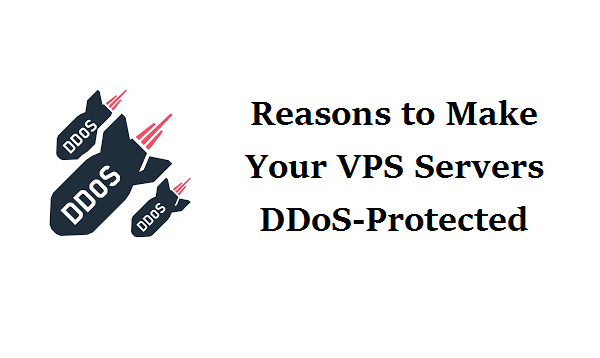Any online business can be affected because of the DDoS or Distributed Denial of Service attacks. The risks are manifold when you have virtual private servers. So, it is very necessary to be aware of the risks of DDoS attacks for VPS servers and how you can adopt suitable measures to combat these problems. When a DDoS attack occurs, the site often goes offline. In short, no visitor is able to access your website at this time. The main reason for this inaccessibility is because the attacks cripple the server and the server is unable to respond to the huge volumes of requests. As a result, users cannot access any application running on such a site.
Risks for VPS servers in case of DDoS attacks:
Besides the inconvenience for customers that are not able to access the website, there are many other harmful consequences. DDoS threats can culminate into lethal cyber crimes. Activities like malware activation, virus attacks, network breaches, thefts etc can all take place because of these attacks.
One of the biggest threats is obviously the huge revenue losses on account of these attacks. When critical applications become unresponsive and the entire site slows down, the results can be disastrous for any business. Newstar.biz and Harris Interactive have undertaken studies to show that nearly 84% of businesses have been affected because of at least a single DDoS attack in the past one year. Incidentally, for most of these businesses, the revenue losses came at the time of peak season sales. During peak times, hourly revenue losses because of DDoS attacks can be colossal depending on how large the organization is.
Another reason why VPS servers must be DDoS protected is because of data breach threats. The DDoS attacks usually provide the perfect cover for many lucrative crimes. So, using these crisis situations, hackers can get access to your network; they can even steal sensitive data. So, the security arrangements undertaken by your host must be robust and fault-proof. The provider needs to carry out regular data backups which should be spread across remote servers in different geographical locations.
When there are frequent DDoS attacks on any website, the customers are likely to lose their trust and confidence. Your website and network must be available and accessible at all times to preserve customer trust. When the existing clients are satisfied, they rate your site well and this attracts new clients. When a DDoS attack occurs, the primary target is the critical infrastructure. This automatically affects network performance and causes dissatisfaction amongst buyers. They tend to navigate to other sites and this makes it very hard for the business to get new customers.
When there are frequent DDoS attacks the business reputation is affected. Brand image is the key to success of all businesses and loss of client trust will tarnish their credibility in the market. Whenever the reputation of a business is threatened, rebuilding customer trust takes a long time.
In the recent past, cyber crimes have grown more and more commonplace. The attackers demand ransoms by threatening businesses with such attacks. Usually the criminals send a message that they are planning to launch such an attack and demand a ransom by a specific deadline for stalling it. At times, they even carry out small-scale attacks just to prove that they can do it.
When the applications become unresponsive due to DDoS attacks, the customers start to call up your representatives to demand explanations. To handle these calls and queries, you will need to invest additional funds into creating active help desks. The web hosting services typically face the biggest threats from such attacks. The main reason for this is that every time there is such an attack on any of a hosting provider’s clients, the risks of an attack on the other clients becomes very high since they often share infrastructures in common.
Since every website environment is unique, a host cannot deploy a one-size-fits-all solution for protecting all its client sites against DDoS attacks. So, a solution that works well for a certain website may not work as well for another site. For virtual servers which have firewalls installed, these are meant to guard against such attacks. The firewalls typically have “allow” and “deny” protocols but attackers can gain entry through the same ports which users are granted access from. Some business owners may feel that DDoS attacks will never happen on their sites because their websites are not very popular. The truth is, the attacks are distributed in nature and they will not depend on your organization’s size.
Hackers are usually tempted to carry out DDoS attacks because of the money involved. They can demand ransoms by threatening to disrupt services. So, as a business owner, you must not accept revenue losses and loss of business credibility because of these attacks. The remedy therefore lies in getting a DDoS protected virtual private server. This DDoS-protected virtual server is housed in a server farm which is equipped to combat DDoS attacks. So, these need robust hardware firewalls and a high transfer limit. Using such VPS servers you should be able to successfully prevent protocol-based attacks, DDoS volumetric attacks, specific server or application attacks etc.






 Live Chat
Live Chat